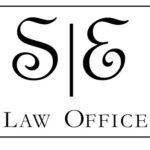CORA (Colorado Open Records Act), Colorado’s “Information Disclosure” Bill, moves closer to a vote. At the center of the controversy, critics allege that passage of the bill would result in rising compliance costs and an increase in lawsuits. Senate Bill 40 would require that the request for documents of public record be provided as digital files, as these documents are stored electronically in the “Ordinary Course of Business.” Producing these documents in their native format as electronic files makes available the “structured data,” the digitally stored file and its associated metadata, including the history of the documents and other characteristics of ESI (electronically stored information), such as the origin, usage, structure and alteration.
Proponents maintain that access to government information in a useful format is key to obtaining relevant information in a timely manner. Those in favor of SB17-040 generally includes bloggers, media organizations and non-profit groups across the political spectrum. If adopted, according to the Denver Post, Colorado would join the federal government and more than a dozen other states in allowing requests for documents be delivered in digital format.
See also http://www.denverpost.com/2017/04/24/colorado-electronic-records-bill/ and http://www.denverpost.com/2017/04/24/colorado-open-records-law-state-house-committee/
